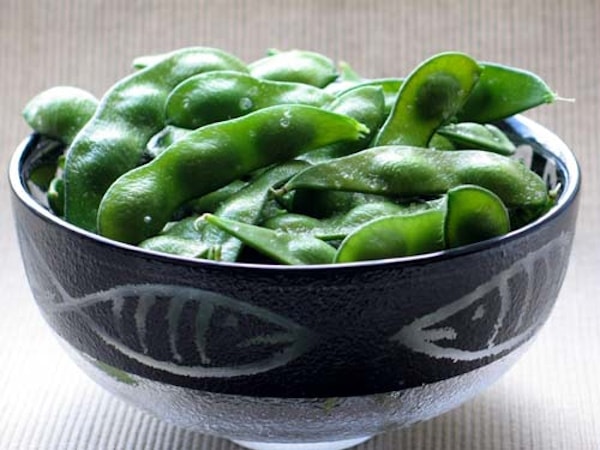Embracing the Plant-Based Sushi Trend

In recent years, plant-based diets have surged in popularity, and sushi has not been left behind in this culinary evolution. Plant-based sushi offers a fresh, creative twist on traditional sushi, replacing fish with marinated vegetables, tofu, and innovative plant-based fish alternatives. We wish to delve into the world of plant-based sushi, exploring its rise, the delicious ingredients used, and why it’s capturing the hearts and taste buds of so many.
Shifting Tastes and Dietary Preferences
As more people embrace veganism and plant-based diets for health, ethical, and environmental reasons, the demand for plant-based sushi has grown. This shift has spurred sushi chefs to experiment with new ingredients and techniques to create flavorful, visually appealing sushi that satisfies the palate without animal products.
Nutritional Benefits of Plant-Based Sushi
Plant-based sushi is not just a trend; it offers numerous health benefits. Packed with fresh vegetables, healthy fats, and high-quality plant-based proteins, it is a nutritious choice for those looking to eat healthily. Ingredients like avocado, cucumber, and seaweed provide essential vitamins and minerals, while tofu and tempeh offer a good source of protein.
Key Ingredients in Plant-Based Sushi
Marinated Vegetables
One of the most exciting aspects of plant-based sushi is the use of marinated vegetables. By soaking vegetables like carrots, cucumbers, and bell peppers in a mixture of soy sauce, rice vinegar, and sesame oil, they absorb a rich, umami flavor that mimics the taste of traditional sushi fillings.
Tofu and Tempeh
Tofu and tempeh are versatile ingredients that work well in sushi rolls. Tofu can be marinated and grilled to add a smoky flavor, while tempeh provides a nutty taste and a firm texture that holds up well in sushi.
Plant-Based Fish Alternatives
Innovations in food technology have led to the creation of plant-based fish alternatives that look, taste, and feel like real fish. These alternatives are made from ingredients like soy protein, seaweed, and konjac root, offering a sustainable and cruelty-free option for sushi lovers.
Creative Plant-Based Sushi Rolls
Veggie Delight Roll
The Veggie Delight Roll is a staple in plant-based sushi. It typically includes a mix of avocado, cucumber, and marinated carrots, all wrapped in a sheet of nori and sushi rice. This roll is light, refreshing, and full of flavor.
Spicy Tofu Roll
For those who enjoy a bit of heat, the Spicy Tofu Roll is a must-try. It features marinated and grilled tofu combined with spicy mayo, cucumber, and avocado, wrapped in sushi rice and nori. The contrast of textures and the kick of spice make this roll a favorite.
Rainbow Veggie Roll
The Rainbow Veggie Roll is a feast for the eyes and the taste buds. It’s made with an array of colorful vegetables like bell peppers, avocado, and sweet potato, arranged beautifully to mimic the look of a traditional rainbow roll. This roll showcases the creativity and artistry involved in plant-based sushi.
Mastering the Art of Replacement in Sushi Offerings
Selecting Fresh Ingredients
The key to delicious plant-based sushi is using fresh, high-quality ingredients. Choose organic vegetables when possible, and experiment with different marinades and sauces to enhance the flavors.
Perfecting Sushi Rice
Perfect sushi rice is essential for any type of sushi. It should be slightly sticky, yet firm, with a delicate balance of sweetness and acidity. Preparing sushi rice involves rinsing the rice thoroughly, cooking it with the right amount of water, and seasoning it with a mixture of rice vinegar, sugar, and salt.
Rolling Techniques
Rolling sushi can be an art form. Using a bamboo mat, place a sheet of nori on the mat, spread a thin layer of sushi rice over it, and then add your fillings. Roll the sushi tightly, applying even pressure, and then slice it into bite-sized pieces with a sharp knife.
Why Plant-Based Sushi is Here to Stay
Environmental Impact
Choosing plant-based sushi over traditional sushi has a positive environmental impact. The fishing industry has significant effects on marine ecosystems, and by opting for plant-based alternatives, we can help reduce over-fishing and promote sustainability.
Ethical Considerations
For many, the ethical treatment of animals is a primary reason for choosing plant-based diets. Plant-based sushi allows individuals to enjoy the flavors and experience of sushi without contributing to animal harm.
Expanding Our Culinary Horizons
Plant-based sushi challenges chefs and home cooks alike to think outside the box. It encourages creativity and innovation, leading to new flavor combinations and exciting dining experiences. It may not be for everyone, but it’s a nice change for many.
A Flavorful Future with Plant-Based Sushi
Plant-based sushi is a delightful and nutritious alternative to traditional sushi, offering a wide range of flavors and textures. Its rise in popularity is a testament to the growing demand for sustainable and ethical food choices. Whether you are a long-time vegan or simply looking to incorporate more plant-based meals into your diet, plant-based sushi is a delicious and satisfying option. Embrace the creativity, savor the flavors, and enjoy the journey into the world of plant-based sushi.
I have always been fascinated by the creation and culture of different foods, particularly sushi and sashimi in the modern era of Japanese cuisine. I am a classically trained chef and sushi connoisseur, also having operated a food service company and enjoy investigating and experimenting with food around the world.